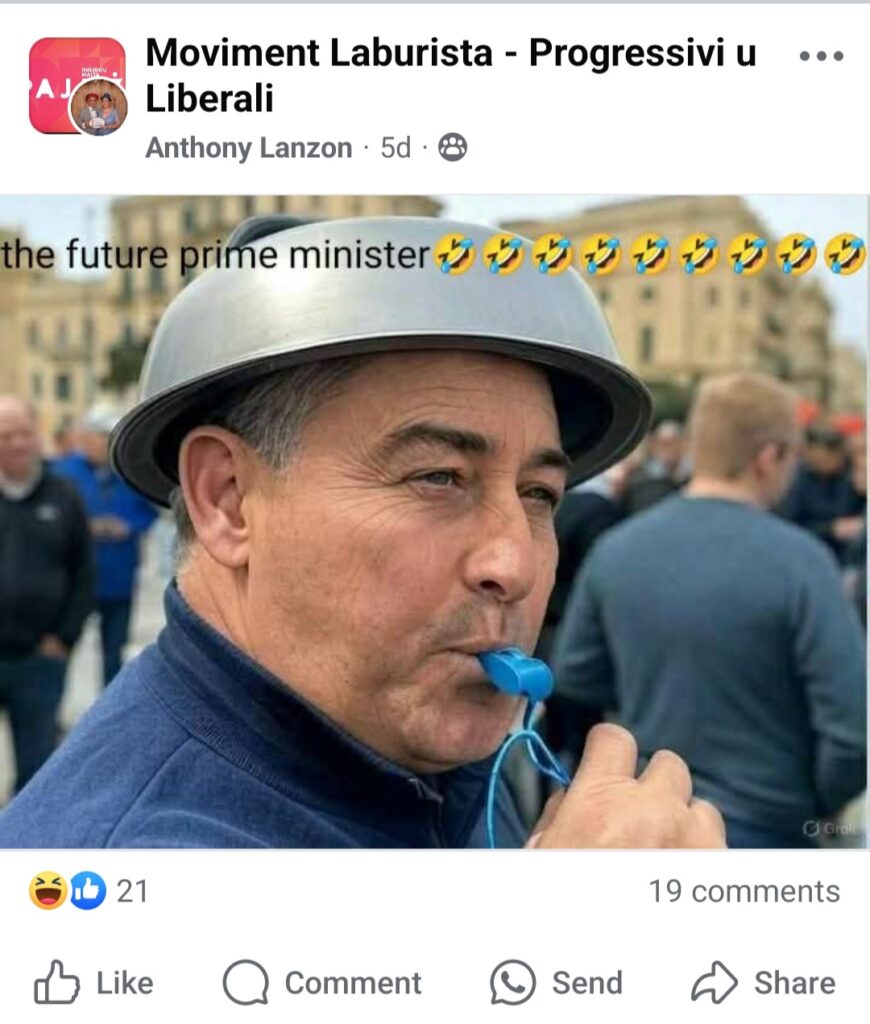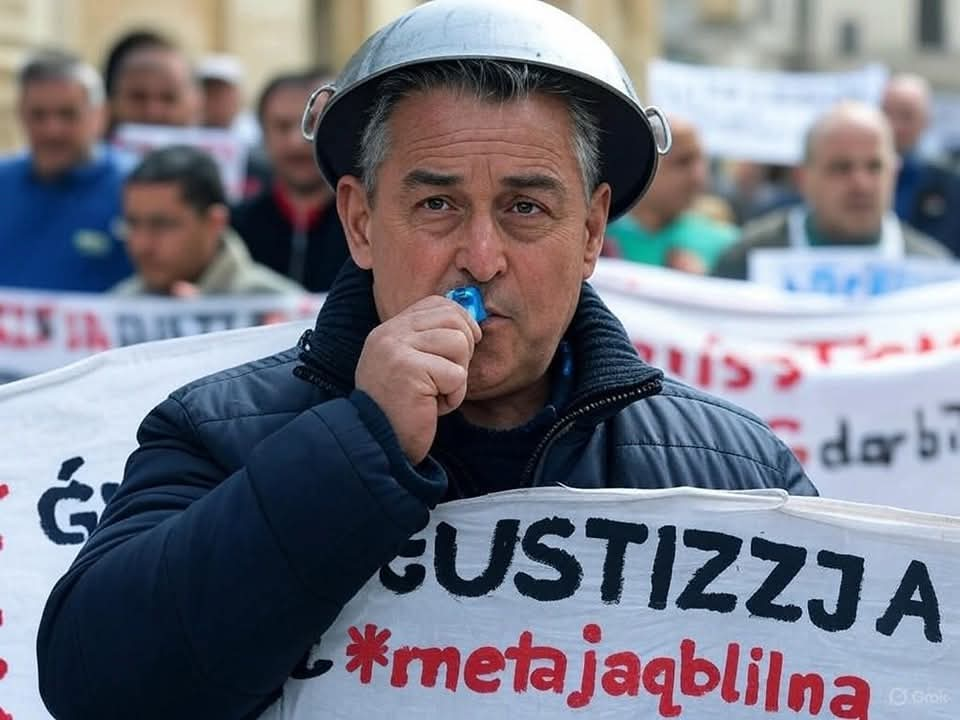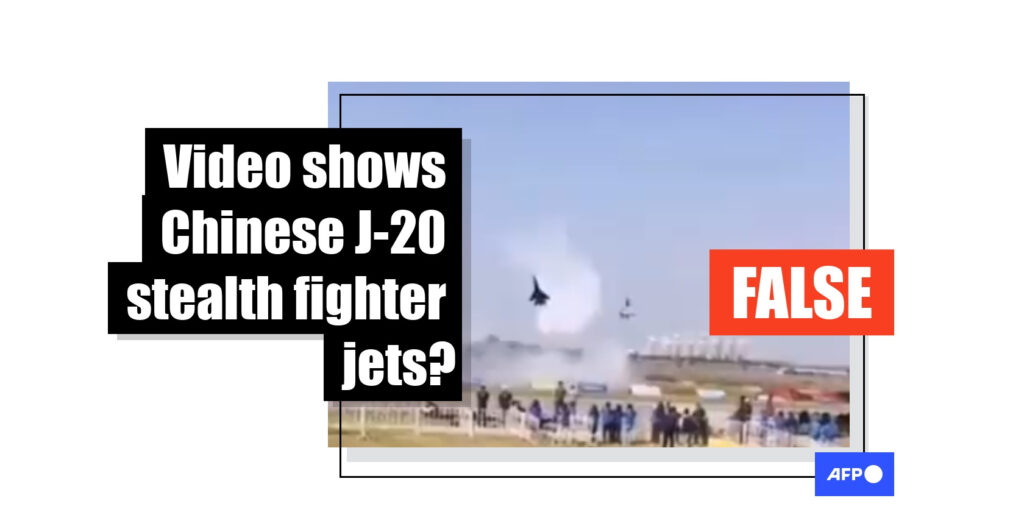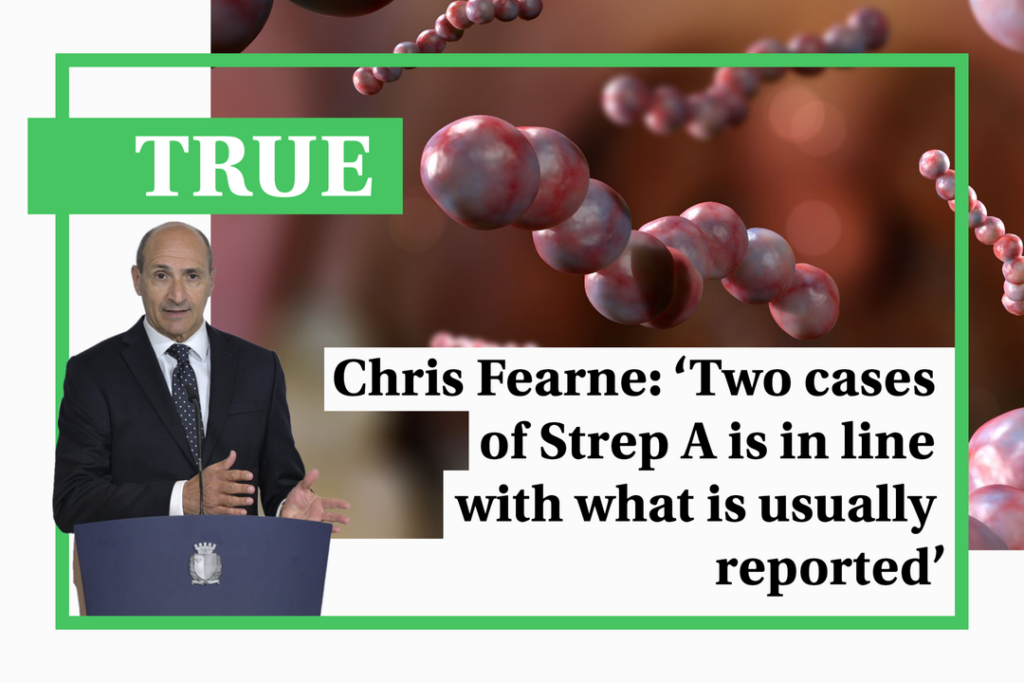Supporters of Malta’s Labour Party are sharing photorealistic AI-generated images in partisan Facebook groups that attempt to portray opposition leader Bernard Grech at a civil society protest in the capital city of Valletta.

shared by users on a Labour Party supporter Facebook group
A protest was held by a number of local NGOs on 2nd April 2025 outside the parliament building in Valletta . The NGOs were calling on Members of Parliament to scrap Bill 125, a reform into Malta’s judicial system. Bill 125 passed the final vote that evening, with 39 votes in favour (from the Labour Party) and 30 votes against (from the Nationalist Party).
The images depict Grech amongst a crowd of people, blowing a whistle and donning an upturned pot on his head. They seemingly mock protest organisers’ calls for people to bring whistles, pots and pans to the protest.
The original source of the AI-generated images is not clear, but when we ran one of them through the Google Lens reverse image search tool, we came to a Facebook page entitled ‘L-Aqwa Żmien ta’ Pajjiżna’ (‘The Best Time of our Country’), a reference to the Labour Party’s 2017 election campaign slogan. The page bears Facebook’s verification badge, which can either mean that it was verified by the platform based on its activity or that it is a paid subscriber of Meta Verified. Its ‘Page transparency’ information shows that it was created in April 2017, the same month as the launch of the Labour Party’s campaign for that year’s election. The page has a following of 13K, but it only follows four pages itself, namely a minister and pages that claim to represent a ‘paper brand’, a ‘childcare centre’ and a ‘contemporary artist’.
The Facebook page posted the AI-generated images on 2nd April 2025 at 5:38pm CET, which was around twenty minutes before the protest they purportedly depict took place (6pm CET).

‘L-Aqwa Żmien ta’ Pajjiżna’ (‘The Best Time of our Country’)

How can you tell that the images are AI-generated?
- Visual inconsistencies
- Light and shadow – does something look unnatural?
- Object alignment/position defies natural order. In both images, the pot appears to be floating on the opposition leader’s head – you would expect it to sit lower on his forehead, flattening his hair.
- Missing/inconsistent elements between a series of images. In this case, the images supposedly depict the same event, but the opposition leader’s clothes vary in each (notice the texture and neckline) as does the pot on his head.
- Gut feeling/logic
- Look at the details, background, etc. The protest took place outside the parliament building in Valletta. Anyone who has been there would know the image backgrounds do not resemble the location – and for those who have not been there, Google Street View helps.
- Consider the time the images were posted. Again, in this case, the Facebook post timestamp shows that they were posted at 5:38pm CET, which was around twenty minutes before the protest they purportedly depict took place (6pm CET).
- Is this expected/characteristic behaviour of the person portrayed?
- Does the image look as if it could have been created with a specific agenda? In this case, the agenda is clear, as we explain below.
- Look out for a tell-tale logo. In the bottom right corner of both images, you will notice ‘Grok’, the AI chatbot developed by Elon Musk’s xAI.
Are the AI-generated images something to worry about?
Images have an instant impact, making them more shareable and therefore more likely to go viral. In this case, by depicting the leader of the opposition, the AI-generated images tap directly into the polarised mindset of party supporters. In being so photorealistic, they can easily mislead.
The intention is clear: the images serve to undermine the activists’ concerns with regards to Bill 125 by framing it as a petty partisan battle.
As the logo in the bottom right corner of each image shows, they were created using Grok, the AI chatbot developed by Elon Musk’s xAI. Grok, which has described itself as ‘the most powerful AI image generator’, has been used to create photorealistic fake images of politicians and public figures in the past, raising concerns about its potential for fuelling disinformation.
The images appear to propagate narratives being pushed by the governing Labour Party, particularly evident by the message on the banner in the first image: ‘ġustizzja meta jaqblilna’ (‘justice when it suits us’). The government has been framing the bill to reform magisterial inquiries as something that will ‘strengthen citizens’ rights’ (to quote its English site The Journal), pushing the narrative that the reform supports justice by putting an end to its ‘abuse’ and that all opposition to the reform stems from the Nationalist Party.
On the evening of the protest on 2nd April 2025, ONE – the Labour Party’s media house – published an article under the headline ‘Protesta bil-borom u s-sfafar fil-Belt mill-għaqda estremista Nazzjonalista’ (‘Protest with pots and whistles in Valletta by the extremist Nationalist group’). Contrary to ONE’s claims, the protest was organised by a number of local civil society organisations, namely Repubblika, #occupyjustice, Fondazione Falcone, Aditus Foundation, The Daphne Caruana Galizia Foundation, Vuċi Kollettiva, and PEN Malta, as shown by a joint statement published on social media (see here).
The governing Labour Party frequently argues that protests against its actions stem from extremist groups within the opposition (Nationalist Party). This claim often points to personal and (past) professional links between the political party and several prominent members of activist groups. This includes the former president of NGO Repubblika, who was one of the people to address the protest, whose brother is the opposition’s justice shadow minister.
This narrative serves to create further societal division by feeding into the ‘us versus them’ mindset that festers in Maltese politics. From the start of the year to the time of writing, ONE website has used the word ‘estremisti’ in dozens of articles, typically in reference to the opposition and to NGOs like Repubblika, whom it portrays as one and the same.
What is Bill 125?
The bill changes the way in which citizens can request the opening of a magisterial inquiry into a suspected crime. They will no longer be able to directly file a request with a magistrate, instead being directed to file a police report first.
If the police fail to act within six months of receiving the report, citizens may file a request with a judge, putting forward evidence that is admissible in court. The judge will then decide whether an inquiry is merited.
Magisterial inquiries triggered by citizens have played an important role in recent years, even leading to high-level prosecutions, such as that of former prime minister Joseph Muscat and several other top government officials over a fraudulent hospitals concession.
The bill has been slammed by several legal experts, including Malta’s Chamber of Advocates , a former chief justice, a former European Court of Human Rights judge and a law professor at the University of Malta.
But the government has stood firm, saying that the bill would curb abuse, following a spate of requests for inquiries filed by a lawyer and former opposition MP in recent months, several of which have since been turned down by courts.








